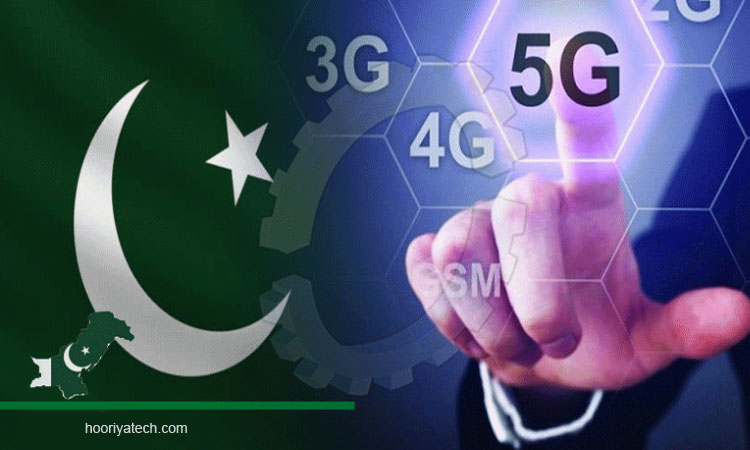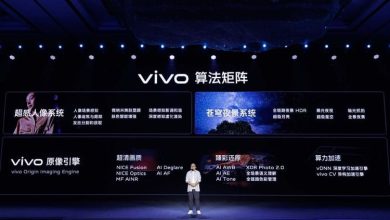5g technology in Pakistan ahead of 2024

Pakistan is on the edge of a technological revolution with the imminent arrival of 5G technology. This next-generation mobile network promises to dramatically enhance connectivity, revolutionize industries, and unlock a world of possibilities for Pakistani citizens. While initial plans for a 2023 launch have been delayed, the anticipation for 5G remains high, with stakeholders eager to explore it’s potential to transform the country’s digital prospect. This blog post delves into the exciting world of 5G technology in Pakistan, exploring its benefits, potential applications, and the current state of its implementation.
What is 5g technology?
5G is the next-generation cellular network technology that promises significantly faster speeds, lower latency, and more reliable connections compared to 4G. This will allow for a variety of new applications, such as self-driving cars, virtual reality, and remote surgery.
How 5g technology works?
5G works by building upon existing cellular technology, using a combination of radio frequencies to transmit data. It utilizes a wider range than 4G, including high-frequency millimeter waves for ultra-fast speeds and lower-frequency bands for broader coverage. Additionally, 5G employs advanced techniques like beam forming, where signals are targeted specifically to user devices, maximizing efficiency and minimizing interference. This complex interplay of frequencies and technologies allows 5G to deliver its remarkable performance boost.
Features of 5g technology
5G boasts a range of powerful features that set it apart from its predecessor:
- Unprecedented Speed: Download movies in seconds, stream high-definition content effortlessly, and experience virtually lag-free online gaming with 5G’s blazing-fast speeds exceeding 10Gbps.
- Enhanced Capacity: 5G can handle a massive influx of devices simultaneously, ensuring smooth connectivity even in crowded areas and paving the way for the Internet of Things (IoT) revolution.
- Ultra-low Latency: Near-real-time communication becomes reality with 5G’s significantly reduced latency, enabling seamless interactions for applications like remote surgery and autonomous vehicles.
- Improved Reliability: Say goodbye to dropped calls and unreliable connections with 5G’s robust network architecture, leading to a more consistent and dependable user experience.
- Wider Range of Applications: 5G’s potential extends beyond smartphones, connecting a vast array of devices, from smart homes and self-driving cars to industrial robots and medical equipment.
- Flexible Spectrum Utilization: 5G leverages a broader spectrum, including mmWave for ultra-fast speeds and lower frequencies for wider coverage, allowing for adaptable and efficient network management.
- Evolution, not Revolution: While a significant advancement, 5G builds upon existing technologies, ensuring continued functionality of 4G networks and a smooth transition for users.
5g Technology Advantages
The advantages of 5G technology are many and varied, impacting individuals, businesses, and industries across the board. Here are some key benefits:
Enhanced User Experience
- Unprecedented speed: Downloading movies in seconds, streaming high-definition content seamlessly, and experiencing near-instantaneous file transfers become a reality with 5G’s incredible speed.
- Ultra-low latency: Real-time communication becomes possible with 5G’s low latency, enabling lag-free online gaming, remote surgery, and interactive virtual reality experiences.
- Improved reliability: No more dropped calls or inconsistent connections with 5G’s robust network architecture, ensuring a dependable and seamless user experience.
Increased Efficiency and Productivity
- Greater capacity: 5G’s ability to handle a massive influx of devices simultaneously allows for efficient network usage, even in densely populated areas.
- Reduced network congestion: With 5G’s improved efficiency, users can expect fewer delays and interruptions, leading to increased productivity and smoother operations.
- Enhanced data transfer: Businesses can benefit from faster data transfer speeds, facilitating real-time data analysis, collaboration, and decision-making.
New Opportunities and Innovation
- Internet of Things (IoT): 5G’s vast capacity and low latency pave the way for widespread adoption of IoT devices, creating new opportunities for smart cities, interconnected homes, and industrial automation.
- Emerging technologies: 5G’s capabilities fuel the development of groundbreaking technologies like autonomous vehicles, virtual reality, and augmented reality, transforming various industries.
- Economic growth: The widespread adoption of 5G is expected to boost economic growth through the creation of new jobs, industries, and business models.
Benefits for Individuals
- Faster downloads: Enjoy quicker download speeds for movies, music, apps, and other large files.
- Improved online gaming: Experience lag-free gaming with near real-time responsiveness.
- Seamless streaming: Stream high-definition content without buffering or interruptions.
- Enhanced video calls: Enjoy crystal-clear video calls with minimal latency.
- Remote work opportunities: Work remotely with confidence thanks to reliable and high-speed connectivity.
Overall, 5G technology offers a plethora of advantages that will revolutionize how we live, work, and interact with the world around us. Its potential to improve our lives and unlock new possibilities is truly vast.
5g Technology disadvantages
While 5G technology boasts numerous benefits, it is not without its disadvantages. Here are some key concerns:
- Health Concerns: Although scientific research is ongoing, some concerns exist about the potential long-term health effects of exposure to non-ionizing radiation from 5G, particularly high-frequency millimeter waves. More research is needed to conclusively address these concerns.
- Security and Privacy Risks: The increased connectivity and data transmission associated with 5G raise security and privacy concerns. Protecting sensitive data and ensuring network security will be crucial to prevent cyberattacks and misuse of information.
- Infrastructure Costs: Building and maintaining the necessary infrastructure for 5G networks is expensive, requiring significant investments from governments and telecommunications companies. This raises concerns about potential delays in implementation and limited availability in less developed areas.
- Unequal Access: The digital divide between developed and developing nations could widen as 5G rollout may prioritize areas with greater economic resources, leaving rural and marginalized communities lagging behind in terms of digital access and opportunities.
- Device Compatibility: Older devices won’t be compatible with 5G, requiring users to upgrade their phones and other devices, which can be financially demanding for some.
- Battery Drain: 5G’s increased power consumption can significantly drain battery life in smartphones and other devices, requiring users to charge them more frequently.
- Environmental Impact: The manufacture and deployment of 5G infrastructure can have environmental consequences, including energy consumption, resource depletion, and electronic waste generation.
- Ethical Concerns: The widespread adoption of 5G technologies raises ethical concerns regarding data privacy, surveillance, and potential social manipulation.
- Regulation and Oversight: Establishing robust regulations and oversight mechanisms is crucial to ensure responsible development and deployment of 5G technology, mitigating potential risks and ensuring ethical use.
It is important to note that these disadvantages are currently being addressed by researchers and policymakers, and solutions are being developed to mitigate their impact. As 5G technology continues to evolve, it is crucial to remain vigilant and implement safeguards to ensure its responsible and beneficial use for all.
Final Takeaways
5G stands at the precipice of transforming our world. Its incredible speed, low latency, and vast capacity promise to revolutionize how we live, work, and interact with the world around us. From enabling new applications like remote surgery and self-driving cars to fostering economic growth and creating new jobs, 5G’s potential is truly immense.
As we embark on this exciting journey into the 5G era, collaboration and responsible development are paramount. By working together, harnessing the power of this technology for good, and mitigating its potential risks, we can shape a future powered by 5G that benefits all humanity.




